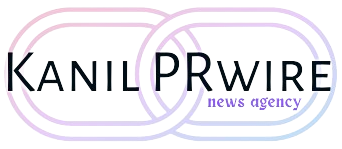Hindenburg Research said India’s Adani Group accuse of misusing offshore tax havens and pointed to concerns over high debt, which eroded $11 billion in investors’ wealth on Wednesday.
The group, led by Gautam Adani, the world’s third-richest man according to Forbes, dismissed the claims of US short sellers as baseless and said it’s programmed to damage their reputations ahead of the massive stock offering.
The group’s flagship firm, Adani Enterprises (ADEL.NS), will launch the country’s biggest secondary public offering of shares on January 27 to raise $2.5 billion to finance capital expenditure and pay down part of the debt.
Hindenburg, known for shorting electric truck maker Nikola Corp (NKLA.O) and Twitter, said he hedges Adani companies through US-traded bonds and non-Indian-traded derivatives.
His scathing investigative report questioned how the Adani group had used offshore entities in offshore tax havens such as Mauritius and the Caribbean Islands, adding that some offshore funds and shell companies linked to the Adani group “secretly hold shares in Adani-listed companies.
Additionally, it claimed that Adani’s biggest publicly traded companies were “much in debt,” placing the entire group on “precarious financial footing.” At what he dubbed “sky-high values,” he asserted that shares of seven Adani-listed firms are down 85% on a fundamental basis.
Adani Group CFO Jugeshinder Singh said the report shocked the company, calling it a “malicious combination of targeted misinformation and old, baseless and discredited allegations”.
“The group has always followed all laws,” the company said without addressing Hindenburg’s allegations.
It added, “The timing of the report’s publication reveals a brazen and evil intention to malign the reputation of the Adani Group with the primary objective of damaging the upcoming follow-on public offering of Adani Enterprises.”
Shares of Adani Transmission (ADAI.NS) fell 9%, Adani Ports and Special Economic Zone (APSE.NS) down 6.3%, and Adani Enterprises fell 1.5%. The seven publicly traded group companies collectively lost $10.73 billion in market capitalization.
In bond markets, US dollar-denominated bonds issued by Adani Green Energy (ADNA.NS) fell nearly 15 cents to less than 80 cents on the dollar, according to Tradeweb data. In contrast, international bonds issued by Adani Ports and Special Economic Zone, Adani Transmission and Adani Electricity Mumbai saw similar declines.
The report coincides with an offer for a secondary sale of Adani shares by key investors on Wednesday, with the company registering Maybank Securities and Abu Dhabi Investment Authority participation on the stock exchange.
According to Hindenburg, the investigative studies were based on a two-year inquiry involving document review and interviews with numerous people, including former Adani Group executives and many others.
In response to a request for comment, the Securities and Exchange Board of India (SEBI), which regulates India’s capital markets, was silent.
Adani has frequently rejected concerns regarding the debt. On January 21, Singh spoke to the press: “No one has voiced any reservations about the loan. Investors have not.”
The Hindenburg report noted that five of Adani’s seven major publicly traded companies had reported short-term liabilities with a current ratio, minus liquid assets, below 1. The short seller said this “suggests greater short-term liquidity risk”.
The overall gross debt of the Adani Group rose by 40% to Rs 2.2 lakh crore in the fiscal year that ends March 31, 2022.
Debt exceeds equity in seven of Adani Group’s major Adani companies, and debt in Adani Green Energy Ltd (ADNA.NS) exceeds equity by more than 2,000%, Refinitiv data shows.
CreditSights, part of Fitch Group, described the group as “overleveraged” last September. While the report later corrected some miscalculations, CreditSites said it’s concerned about the leverage of the Adani group.
Hindenburg also said he’s concerned that a substantial portion of the capital held by promoters or major shareholders of Adani Group-listed companies committed to debt.
According to the research, “Equity share promises are an inherently insecure source of loan collateral.”
The Adani Group acquired cement manufacturers ACC (ACC.NS) and Ambuja Cements (ABUJ.NS) from Swiss company Holcim (HOLN.S) for $10.5 billion last year. Days later, it entered into a non-disposal agreement with banks, pledging shares in the two companies—worth approximately $12.5 billion at the time—to prohibit selling the shares before lenders approved the repayment of the debt.



